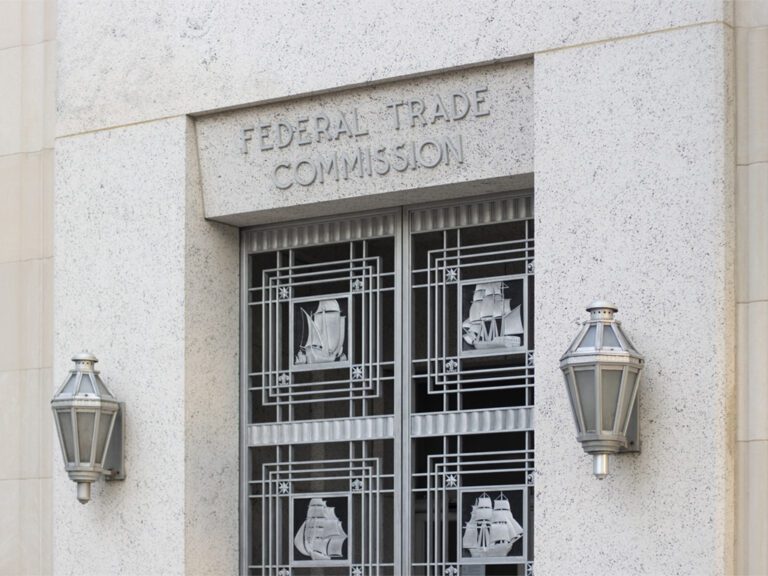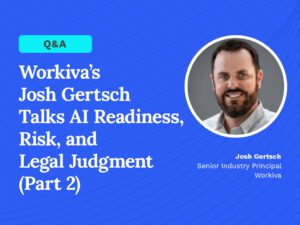Breaking Down the Judicial Split Over the FTC Noncompete Ban

By Jeffery M. Cross
August 22, 2024

Jeffery M. Cross is a columnist for Today’s General Counsel and a member of the Editorial Advisory Board. He is Counsel in the Litigation Practice of Smith, Gambrell & Russell, LLP. Cross was a Partner at Freeborn & Peters, which merged with SGR in 2023. He can be reached at jcross@sgrlaw.com.
Two federal district courts have reached opposing conclusions regarding the Federal Trade Commission’s rule banning employment noncompetes. We should brace for an uncertain future regarding the FTC noncompete ban, which would have sweeping implications for both employers and employees. In the meantime, let’s analyze each Court’s reasoning on the issue of whether the FTC had authority to issue substantive rules and see what led to this divide.
A Tale of Two Courts
The first Court was in Texas. On July 3, 2024, it stayed the effective date of the Final Rule and enjoined the FTC from enforcing it. On Aug. 20, 2024, it issued a summary judgment holding the Final Rule unlawful and setting it aside nationwide. The second Court was in Pennsylvania. On July 23, 2024, it denied a request for a stay and a preliminary injunction, declining to block the FTC Rule.
Both Courts acknowledged the fundamental principle that, when construing a statute, courts must begin with the language employed by Congress. Both Courts noted the well-accepted principle that “the words of a statute must be read in their context and with a view to their place in the overall statutory scheme.”
Both Courts focused on the question of whether Congress granted the FTC the authority to issue substantive rules concerning unfair methods of competition. The two sections of the FTC Act at issue in these decisions were Section 5 and Section 6(g). The key to this question was in Section 6(g) of the Act, pursuant to which the Commission has the power “to classify corporations and … to make rules and regulations for the purpose of carrying out the provisions of this subchapter.”
Small Business Plaintiffs
The plaintiffs in both cases were small businesses that used noncompetes. Ryan, LLC is a global tax service company, and ATS Tree Services, LLC is a tree care company.
In Ryan, LLC v. FTC, the US District Court for the Northern District of Texas held that “[b]y a plain reading, Section 6(g) … does not expressly grant the Commission authority to promulgate substantive rules regarding unfair methods of competition.”
The US District Court for the Eastern District of Pennsylvania Court ruled differently in ATS Tree Services, LLC v. FTC. In that case, the Court concluded that “[n]othing in Section 5 or Section 6 expressly limits the FTC’s rulemaking power to exclusively procedural rules.”
The Courts’ Rationale
The Texas Court noted that Section 5 describes the FTC’s enforcement powers through administrative adjudications. Under such a scheme, the FTC could issue a cease-and-desist order to the offending party and subject it to penalties if the order was violated. In contrast, the Court found that there were no penalties associated with the rule making found in Section 6(g). To the Court, the lack of a penalty provision indicated that the rulemaking was procedural, not substantive.
In the Pennsylvania proceeding, the plaintiff also argued the FTC should be limited to adjudications for unfair methods of competition. The plaintiff argued that Section 6(g) only authorized procedural rules to develop mechanisms for adjudications. The Court rejected that argument. It held that the plain text of the statute provided no express limitations on the FTC’s rulemaking authority.
Statutory Interpretation
As noted above, both courts acknowledged the principle of statutory interpretation that language of a statute must be considered in the context of its place in the statutory scheme. In that regard, the Texas Court found that Section 6(g) was part of a string of 12 rules that were almost entirely investigative rules. Furthermore, it was the seventh in this list of 12. In addition, the Court found suspect the fact that Section 6(g) started out with stating the power to “classify corporations,” and only in the second half of the rule was the alleged substantive rulemaking. The Court concluded that, if the FTC is correct in its interpretation, then Congress did not choose to place such a substantial power in a primary, independent place.
In contrast, the Pennsylvania Court noted that Section 5 of the FTC Act “empowered and directed” the FTC to “prevent” persons or entities from using unfair methods of competition. It concluded that the word “prevent” is a forward-looking prescriptive, requiring the FTC to take action to avoid or avert a future occurrence. In contrast, limiting the FTC to strictly an adjudicatory body would make it solely react to a past occurrence.
With such divergent opinions on the FTC noncompete ban, the decisions undoubtedly will be appealed. If the Courts of Appeal uphold such divergent views, then the issue would be bound for the Supreme Court. Stay tuned!
Critical intelligence for general counsel
Stay on top of the latest news, solutions and best practices by reading Daily Updates from Today's General Counsel.
Daily Updates
Sign up for our free daily newsletter for the latest news and business legal developments.



